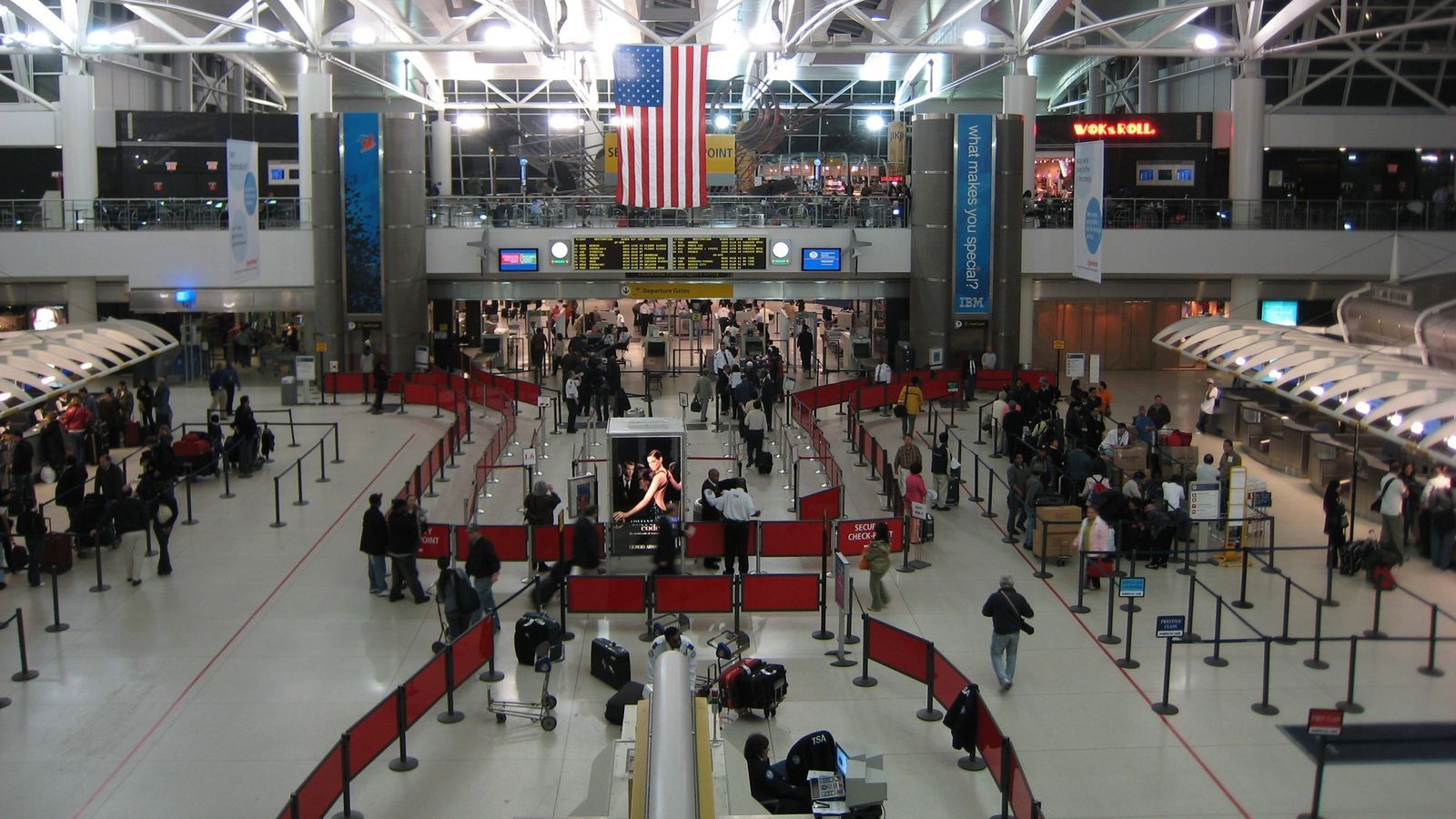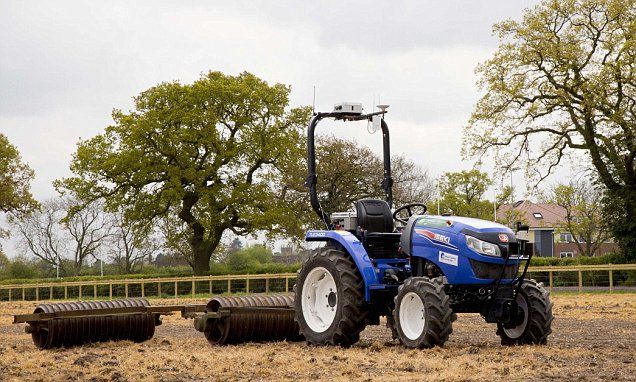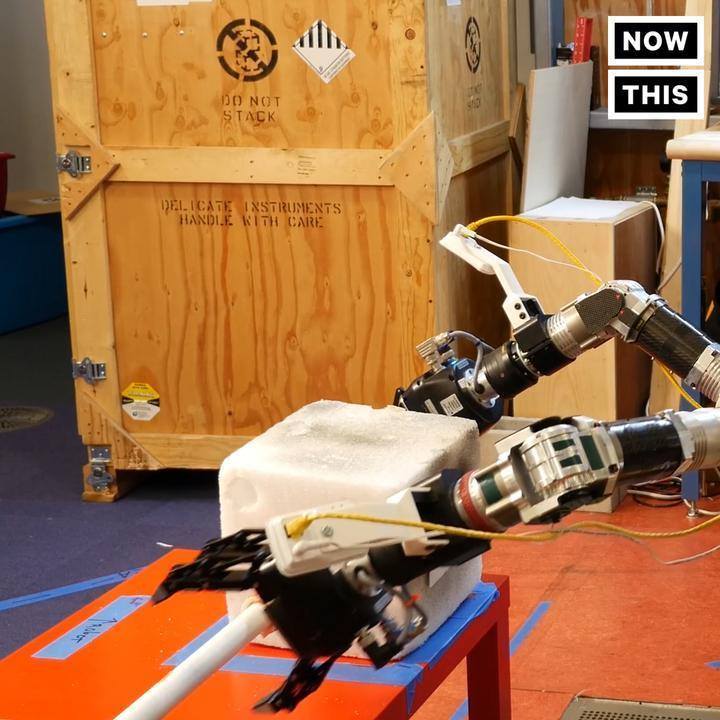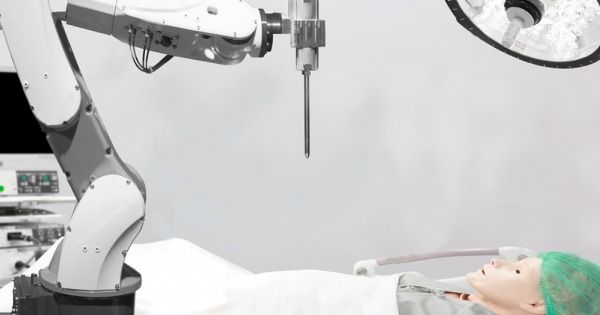Discovery opens the door to networks that operate in ways that mimic the function of the human brain.



The US government has rolled out a plan to reshape airport security around facial recognition, playing off a wealth of passport photos and visa applications.
Led by Customs and Border Protection, the plan is built around the Biometric Exit program, which will register visitors leaving the US using facial recognition. But new statements show that CBP’s plans could make facial scans necessary for US citizens as well, documenting them when they reenter the country or pass through TSA checkpoints. The result would eventually grow into an airport-wide system Customs officials call “The Biometric Pathway.”
John Wagner, deputy assistant commissioner at CBP, laid out that vision at the ConnectID conference last week. “We’re going to build this for [Biometric] Exit. We’re out of time, we have to,” Wagner told the crowd. “But why not make this available to everyone? Why not look to drive the innovation across the entire airport experience?”

Self-driving cars could soon be hitting the streets of the Big Apple, thanks to a new law that allows firms to apply to run trials there.
New York joins a growing list of states that are accepting applications for autonomous vehicle trials.
Cars will not allowed to be completely driverless yet, with a human driver in place to step in in case of emergency.

Future of farming? Driverless tractors and drones attempt to grow crops without humans setting foot on the land in a world first…
Drones are also being used to monitor the crops so agronomists don’t have to enter the field to carry out their observations.
The team from the Harper Adams University in Shropshire believe their research will revolutionise farming and free up the time of farmers.
Johnathan Gill, Kit Franklin and Martin Abell are using small-scale machinery that is already available on the market including a 38bhp Iseki TLE 3400 compact tractor and adapting these in the university’s engineering labs.

Move over Sherlock: AI detective Valcri solves crimes using deductions made from MILLIONS of pieces data…
A super-sleuth AI system created by scientists at the University of Middlesex in London scans millions of police files to suggest how and why a crime happened, all at the click of a button.

A critical article on my work by The Rouser with some mangled facts in it for effect. But still worth reading: https://rousernews.com/2017/05/08/why-zoltan-istvan-isnt-a-true-libertarian/ #libertarian #transhumanism
Zoltan Istvan is a journalist and blogger who strongly supports transhumanism, a concept that promotes the idea that humans can utilize the advancement of technology in order to live forever. His rise to stardom began after writing a controversial sci-fi novel called The Transhumanist Wager, but he is also well known due to some of his rather outlandish statements. In 2016, Istvan ran as an independent candidate for president with very little support. He is now running for California governor as a libertarian, and though he is promising a libertarian platform, some of his ideals and scientific views seem to promote another worldview. This could be because he lacks experience of either a scientific or political background.
While transhumanism promotes the idea that humans can advance technology to eventually live forever, it also suggests that this goal will be achieved without any ethical consequences.
Its proponents believe that humans will take this next step through robots, which will require a rewriting of ethical codes for the new species. Most transhumanists also avoid mentioning the ethical problems of making civilization hackable or the potential of a technological enslavement. Unfortunately, some people, like Istvan, are actually going into politics based off of this transhumanist mindset.

In the near future, as artificial intelligence (AI) systems become more capable, we will begin to see more automated and increasingly sophisticated social engineering attacks. The rise of AI-enabled cyberattacks is expected to cause an explosion of network penetrations, personal data thefts, and an epidemic-level spread of intelligent computer viruses. Ironically, our best hope to defend against AI-enabled hacking is by using AI. But this is very likely to lead to an AI arms race, the consequences of which may be very troubling in the long term, especially as big government actors join the cyber wars.
It will become the problem and the solution.


Yes, this works with the financial profile of “middle class” American families.
(Tech Xplore)—RethinkX, an independent think tank that analyzes and forecasts disruptive technologies, has released an astonishing report predicting a far more rapid transition to EV/autonomous vehicles than experts are currently predicting. The report is based on an analysis of the so-called technology-adoption S-curve that describes the rapid uptake of truly disruptive technologies like smartphones and the internet. Additionally, the report addresses in detail the massive economic implications of this prediction across various sectors, including energy, transportation and manufacturing.
Rethinking Transportation 2020–2030 suggests that within 10 years of regulatory approval, by 2030, 95 percent of U.S. passenger miles traveled will be served by on-demand autonomous electric vehicles (AEVs). The primary driver of this unfathomably huge change in American life is economics: The cost savings of using transport-as-a-service (TaaS) providers will be so great that consumers will abandon individually owned vehicles. The report predicts that the cost of TaaS will save the average family $5600 annually, the equivalent of a 10 percent raise in salary. This, the report suggests, will lead to the biggest increase in consumer spending in history.
Consumers are already beginning to adapt to TaaS with the broad availability of ride-sharing services; additionally, the report says, Uber, Lyft and Didi are investing billions developing technologies and services to help consumers overcome psychological and behavioral hurdles to shared transportation such as habit, fear of strangers and affinity for driving. In 2016 alone, 550,000 passengers chose TaaS services in New York City alone.
